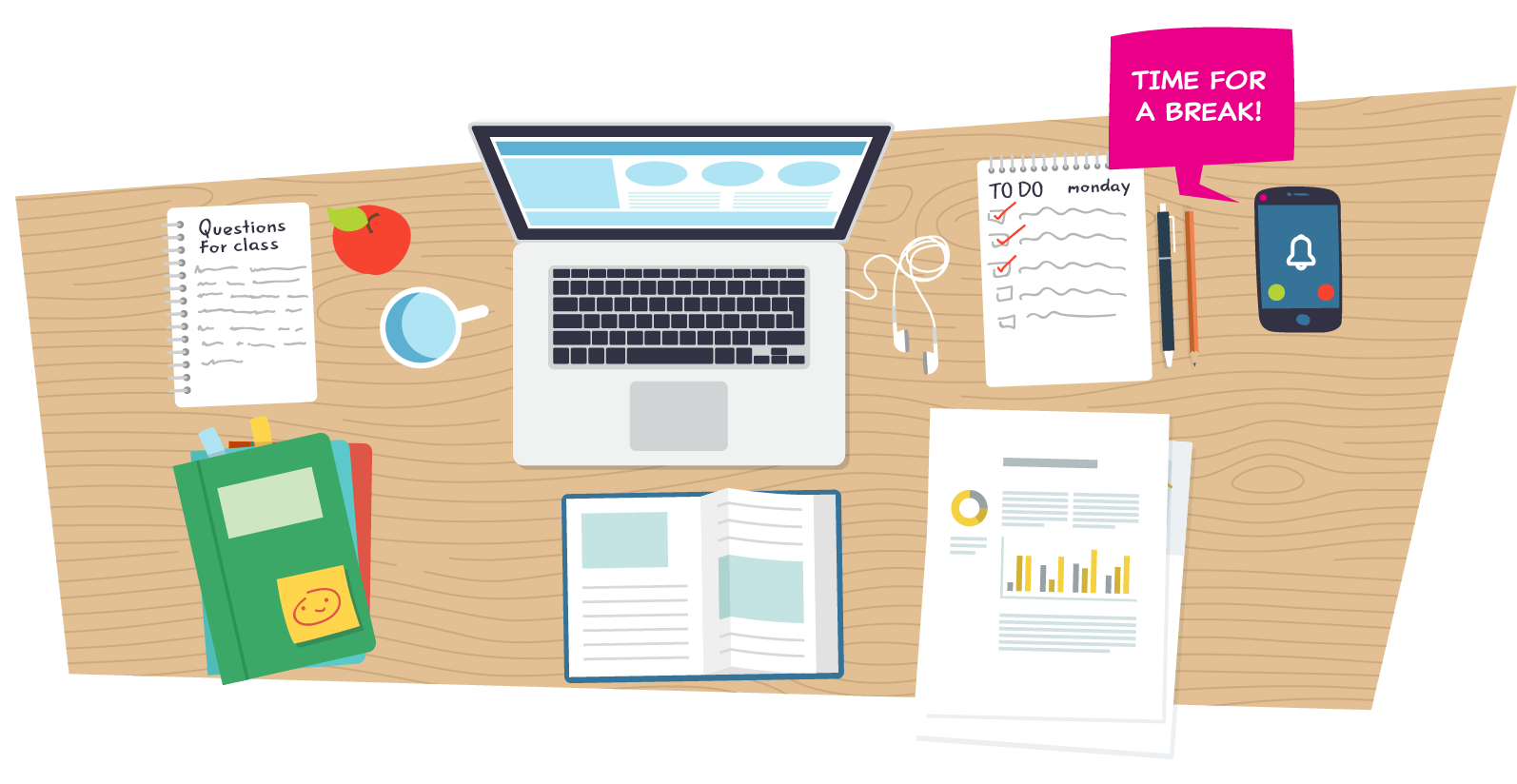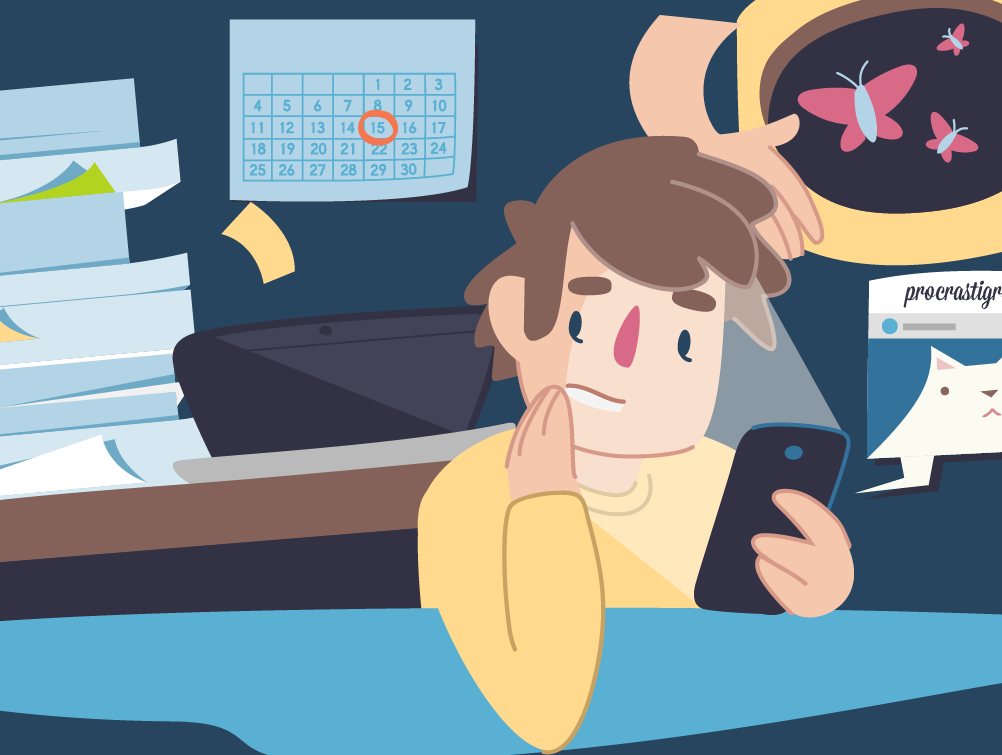Exam Stress
Exam time can be challenging. While a bit of pressure can help keep you motivated, too much can cause stress. Check out these tips to help you manage stress during exams.

What does exam stress look like?
Some signs include:
Feeling confused or indecisive
Losing touch with friends
Feeling irritable and low
Difficulty getting motivated
Trouble sleeping or getting out of bed
Feeling overwhelmed
Tense muscles or headaches
Pounding heart or feeling sick
Having an upset stomach
Fidgeting, nail biting, teeth grinding
Why do people experience exam stress?
People may experience it because they:
Fear failing
Feel unprepared
Have negative self-talk
Have high expectations
Have performance anxiety
Feel competitive
Need to get a certain result
Feel pressure from family
Have limited time to study
Have other issues happening in their life

Preparing to study
It’s never too late to set up good study and revision habits. Here’s some helpful ideas:
Find a quiet place to study without distractions.
Have an uncluttered space to work, with access to any materials you need.
Find out as much as you can about the exam so you can prepare.
Ask your course advisor if you’re unsure of what to expect or what will be tested.
Learn to make ‘mind maps’ and use them to collect ideas and summarise thoughts, use bright colours to help remember important links.
Make a clear plan of what you want to cover in each study period. Break it down into small tasks and work on one task at a time.
Take regular short breaks – use this time to have a drink, get something to eat or play with a pet.
Ask for help. It may be useful to have someone hear you summarise points or to practise an oral presentation.
Practical tips to help with study
Try these tips and tricks:
Ideas for exam day
Here’s some tips to help exam day go smoothly:
Work out what you need to take with you on exam day and organise this the night before.
Eat a good, light breakfast – this will help with energy and concentration.
Go to the toilet before the exam starts.
If you feel yourself getting anxious before your exam - spend some time focussing on your breathing.
When you sit down to do your exam, take time to slow your breathing and relax.
Read through the exam paper carefully. Underline key words and instructions.
Work out how long you have for each question or section.
Aim to have time to re-read answers through and to make any changes.
Work on the questions that you find easiest first.

"Remember passing an exam is only part of the story. There’s always a second chance or another way to reach your goals"
If you’re feeling stressed about exams, you’re not alone.
Support is always available.
Talking to someone and finding ways to manage stress during exam time can help. Studying can be manageable and relatively stress free once you know how.
If you need more support managing exam stress, give us a call, start a WebChat or email us today.
If you are looking for more digital services and resources, check out Head to Health.
If you would like individual online support to help you reach your work and study goals headspace Work and Study Online can help.
Check these out too:
Looking after yourself
If you’re juggling lots of things like work, study and relationships, ...
READ MEAll about anxiety
Everyone feels anxious from time to time. But for someone with anxiety, ...
READ MEBuilding resilience
We all get knocked down by life. Resilience is what helps you ...
READ MEDrugs and Alcohol
There’s always a risk involved in taking drugs and alcohol. It’...
READ METalking helps! We’re here for you.
No problem is too big or too small.
We're here 24 hours a day, 7 days a week






